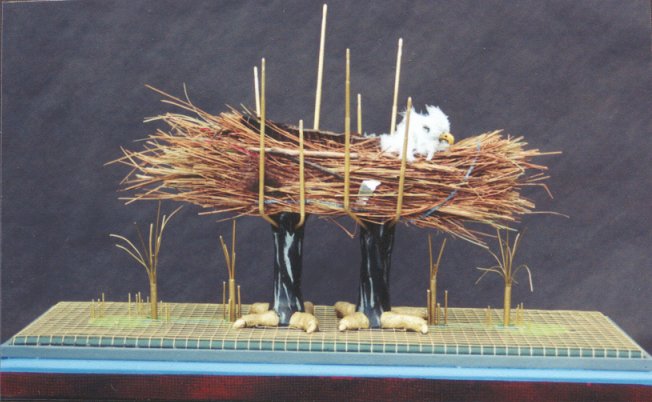
Pollard
2000Sculpture
Mixed Media
H18" x L30" x W10"

Before "discovering" America, Europe was suffering a great shortage of wood because of centuries of practicing deforestation. At one point the rulers of certain countries ordered the designing and building of efficient wood burning stoves. A lot of the wood available to burn was small branches and shoots, faggots. These pieces burned at a very high temperature very quickly. The heat then was absorbed by the mass of the stove and released slowly into the surroundings throughout the day and night. Small shoots would grow from the stumps. When they grew large enough, these shoots could be harvested for fuel. But before these shoots grew to a usable size the local animals would consume them. So, when it came time to cut down a whole tree, instead of cutting the tree at ground level, the tree was cut much higher up. When the shoots grew out of the tree trunk they were out off reach of the animals. These higher tree trunks were referred to as: 'pollard'.
In this piece, the baby bird is nested in the pollard tree trunks. This represents the condition of the global forests. The ground below is still green and it rests above gray shale, black rock and the red lava. But the ground is compromised by two golf courses, blue and yellow amoeboid shapes, and the protrusion of two brass golf tees. The shrub growth below the nest is made of brass wire and rod suggesting manicured stagnant flora. The ground is tightly cloaked by a golden grid of cage wire. This represents the expanding global-corporate division, intrusion, and control of the Earth. The bird nests much lower in the pollard trees now. The eagle has a much lower status than it did in the past. But there is hope because at the base of the tree trunks, great golden talons have a grip on the grid.
Although a majority of the materials in this piece are reclaimed, the artist is succumbing to the easy availability of new products. As he ages he would like to spend less time searching for and working on used materials and have more fun ' playing with' the materials.